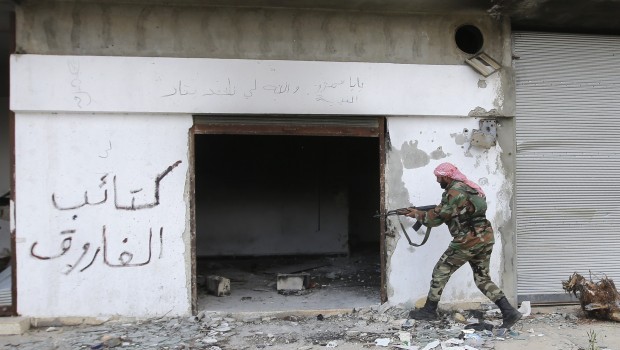For over a year now, extremist groups have been urging Muslim youth to join the war in Syria. They succeed in prompting hundreds, if not thousands, of Muslim youth from different nationalities to join their cause.
The latest development is the news that this figure is on the rise. The number of jihadists in Syria will be far greater than those we’ve seen over the past 20 years in Afghanistan, Iraq and Somalia.
The main reason for this is the continuing war and the brutality of the Syrian regime’s crimes, in addition to the involvement of Shi’ite Hezbollah fighters, Iranian soldiers and Iraqi militia, transforming the conflict into a sectarian war.
An expert on extremist Islamist groups has estimated that the number of jihadists in Syria will most likely outstrip all expectations. He said that we should not be surprised if the number exceeds 30,000 in the upcoming months. He also believes that regional governments, which have sought to increase security, will ultimately fail to prevent these youth from traveling to Syria. This is despite the employment of clerics, muftis and other religious figures to urge the youth against participating in the fighting.
The war in Syria appeals to the sentiments of many. There are some who feel that their brothers have been dealt a great injustice. Such youth possess sectarian religious beliefs that make them feel that jihad is obligatory and that their Islam is not complete without it. Many websites, meanwhile, continue to urge young men to join the war in Syria.
In the face of these challenges, several countries, including those that support the Syrian opposition—such as Saudi Arabia—have urged their citizens not to go to war in Syria, emphasizing that this is the Syrians’ land and their affair, and the last thing they need is foreign fighters appearing on the scene.
The crimes of the Syrian regime and its allies—Hezbollah, Iran and Russia—have compelled many, both Sunni and Shi’ite, to go to Syria and fight. The problem will not remain limited to Syria; it will expand to include the entire region. Syria has revived Al-Qaeda, which had lost both its glory and a number of its leaders, who have been killed over the past few years.
Do not be surprised if some of enemies of Al-Qaeda also call for jihad and send fighters to die for the sake of eliminating the regime’s militias and its allies. These people view this as a decisive war against the Iranian camp, believing that the Free Syrian Army (FSA) and its humble capabilities are unable to secure victory alone.
They do not see any political solution that guarantees the toppling of the Assad regime on the horizon. Therefore, a few thousand suicide bombers will no doubt help defeat the Assad regime and the Iranians. Although the idea of sending jihadists, who are willing to die, to Syria appeals to many who think that the balance of power has shifted in the favor of the Iranians, it is short-sighted.
These jihadist groups will later turn into terrorist organizations working against the Syrian people, the region and the world.
They will follow the path of Afghanistan’s jihadists, who fought the Soviets in the 1980’s but became the largest terrorist organization in the world after the end of the war.
These jihadist groups will become a problem for the Syrian people. These groups will harm Syria’s unity and political plans. The Syrian people will end up getting rid of a criminal dictator, only to find themselves governed by an extremist group that also resorts to crimes to impose its political agenda.
The only military option is to enable the Syrian people to defend their country by supporting them with arms, training and intelligence.
Some may say that such aid had been present but has ultimately not been successful, especially after professional and well-equipped forces from the Iranian camp entered the battlefield.
Yes, support is there, but this falls short of the needs of the Free Syrian Army, which continues to request more aid and assistance.
However, we must also not underestimate the Syrian opposition’s power and will. We must not forget that it seized most border crossings and many military airfields, and secured control of more than half of Syria.
This means that despite the recent defeat as a result of the arrival of the Iranians and their allies, the opposition is still capable of shifting the balance of power.
